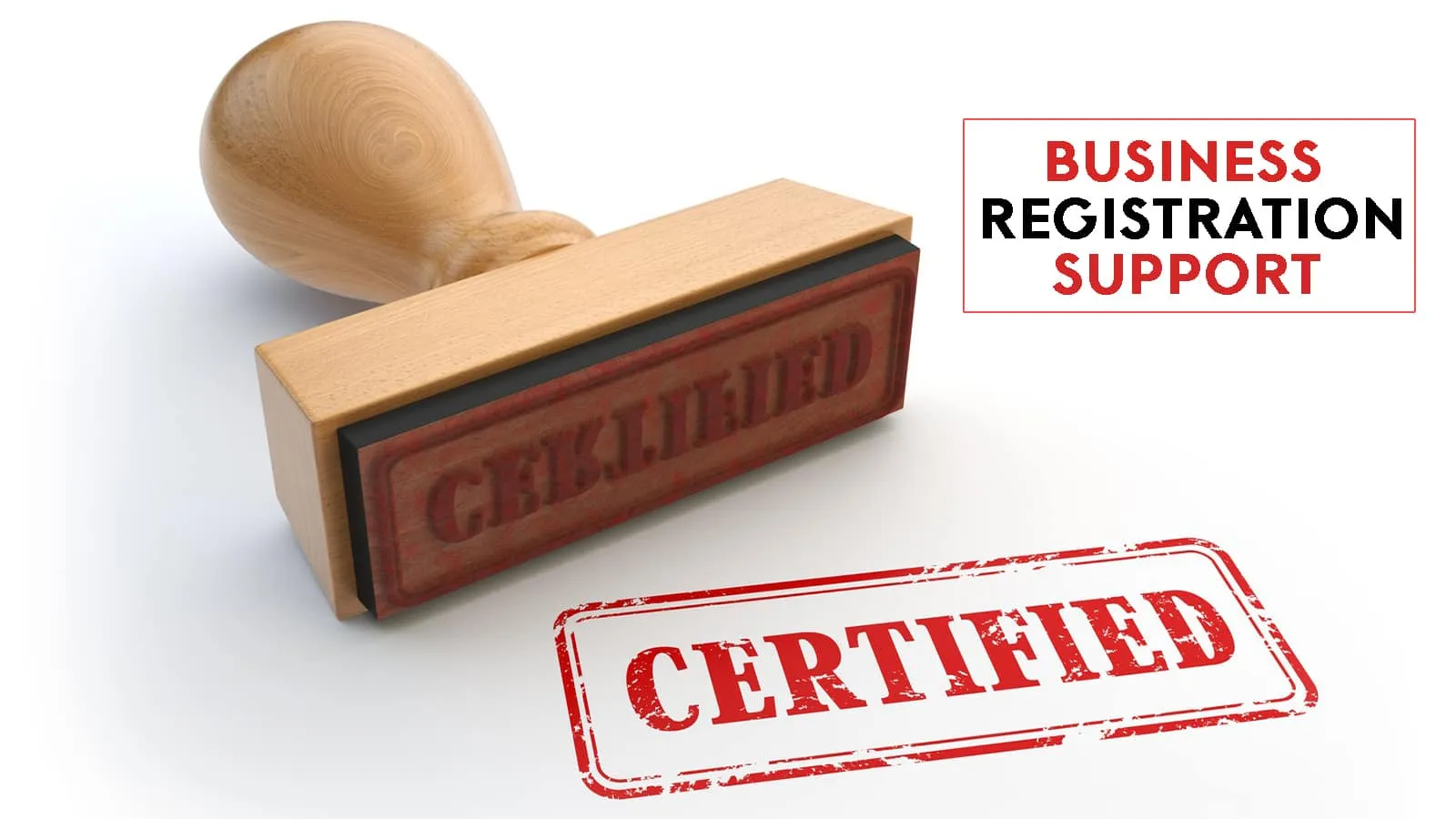If you are hesitating between opening a business household or establishing a limited liability company, then please note: Choosing correctly from the start will determine the long-term development potential of your business. According to statistics from the General Statistics Office of Vietnam, in 2023 alone, more than 351 small businesses had to change their operating model after 1 year due to an initially unsuitable legal choice. Therefore, understanding the difference from the beginning is an extremely important step to save costs, avoid legal risks, and maximize growth potential.
According to consulting experience for hundreds of SMEs at DPS.MEDIA, business households are suitable for small scale, simple operations, while limited liability companies are suitable for solid business plans and long-term expansion. Business households have quick procedures, low costs, simple tax obligations but are limited in labor quantity (maximum 10 people) and owners bear unlimited liability with all personal assets. This becomes a major barrier when businesses need to develop or raise capital.
Conversely, limited liability companies help you separate personal assets and business assets,reduce personal financial risks. Businesses with independent legal entity status can easily expand their workforce, access bank loans, sign large contracts, and build a more solid brand. However, limited liability companies require more solid management processes, regular tax reporting, and a professional operational team.
Choosing a business model is not only an administrative procedure, but also the strategic foundation for the strong growth of the brand in the future. Whether you operate a coffee shop, a local transport company, or a technology firm, the appropriate legal model will determine your growth capacity and reputation with partners and customers from the start.
Based on each business goal, financial resources, and development plan in the next 1–3 years, DPS.MEDIA recommends:
- If you only want to run a small-scale business, with little capital and low risk → prioritize a business household.
- If you aim for rapid growth, expanding the team, seeking investors → you should establish a limited liability company (LLC) right from the start to avoid wasting time and costs on later transitions.
Understanding clearly to choose correctly from the beginning – that is how smart entrepreneurs start their successful business journey. And if you need further consultation to make decisions suitable for your long-term development strategy, let DPS.MEDIA accompany you.
Understand the legal nature between business households and limited liability companies
Legal framework and legal entity status
Regarding the essence, a business household is a model of individual business registration, without legal entity status. The representative (household owner) must bear full responsibility with personal assets. Conversely, a limited liability company (LLC) is an independent legal entity under the provisions of the 2015 Civil Code, with limited financial liability at the charter capital. According to a Harvard Business Review industry report, this difference deeply affects the ability to expand and the legal safety level of the enterprise.
Based on practical experience from DPS.MEDIA's SME support projects, we recognize that technology start-ups often choose LLCs to easily raise capital and sign contracts with foreign partners, while traditional business households (such as restaurants, retail stores) are more flexible in operating costs and initial tax procedures.
| Criteria | Business household | Limited liability company (LLC) |
|---|---|---|
| Legal entity status | No | Yes |
| Liability regime | Unlimited (personal assets) | Limited (contributed capital) |
| Organizational scale | Small, under 10 employees | Flexible, easy to expand |
| Tax and accounting | Simple | More complex, requires accounting |
Impact on long-term development strategy
According to the research “SME Growth Pathways in Southeast Asia” (World Bank, 2022), the LLC model has proven to have better capital attraction potential thanks to legal transparency and credibility. DPS.MEDIA has advised the “GreenLeaf - clean agricultural products” project to transition from a business household to an LLC during the scale-up phase, helping successfully sign distribution contracts with major supermarkets.
- Business household: suitable for the product or service trial phase.
- Limited liability company (LLC): suitable when the business aims to build a long-term brand and expand market scale.
Looking broader, choosing the right model is not only a legal matter but also a strategic orientation for the sustainable development journey of every SME in Vietnam.

Strengths and weaknesses when choosing a business household model
Outstanding advantages: Simple & cost-saving
From DPS.MEDIA's practical experience advising over 500+ SMEs, business households are the ideal choice for those who want to start quickly and with minimal administrative procedures.Some notable advantages:
- Establishment procedures are extremely simple, can be completed within 3-5 working days.
- Operating costs are low, no requirement for complex financial reporting like LLCs.
- Flexibility to change industry or business location whenever necessary.
A real example from a customer of DPS.MEDIA - Ms. Ngoc Anh, owner of GUMI TEA milk tea shop (Ho Chi Minh City), chose the household business model to save 45% in operating costs compared to the enterprise structure, allowing her to focus resources on marketing activities and product development from day one.
Limitations: Risks and expansion possibilities
Although convenient, the household business model also has some weaknesses that you need to consider:
- Liability regime unlimited: The owner must bear all financial risks with personal assets.
- Expansion capability is limited: Household businesses are not allowed to raise capital or have multiple owners.
- Commercial reputation is lower than limited liability companies in the eyes of investors and large customers.
In the research of Vietnam Chamber of Commerce and Industry (VCCI), only 15% household businesses self-developed into official enterprises after 3 years of operation. This shows that if you plan to build a solid brand and expand on a large scale, household businesses may not be the optimal long-term foundation.
Quick summary table: Advantages and disadvantages
| Criteria | Business household |
|---|---|
| Establishment | Simple, fast |
| Capital | Self-managed, no capital mobilization |
| Legal liability | Unlimited (personal assets) |
| Scale expansion | More difficult than limited liability companies |
| Operating costs | Low |
DPS.MEDIA's perspective shows: the household business model is suitable for the "incubation" stage of business ideas. However, for entrepreneurs who aspire to build a sustainable brand, develop a team, and access large capital sources, limited liability companies are a wiser strategic choice.

Advantages and challenges when starting a business with a limited liability company
Main advantages: Protect personal assets and professionalism
According to the analysis from the Vietnam SME Whitebook 2023 report, more than 65% new enterprises in Vietnam choose the limited liability company model thanks to its outstanding advantages in legal status and capital mobilization ability. Some notable advantages include:
- Limited liabilityThe owner only bears responsibility within the contributed capital, minimizing personal asset risks.
- Easy scale expansionCompared to household businesses, limited liability companies easily attract investors and strategic partners.
- Increased credibilityB2B partners, especially in import-export or technology sectors, often prioritize transactions with limited liability companies.
Case study: At DPS.MEDIA, a customer in the natural cosmetics field switched from a personal household business to a limited liability company after only 8 months of operation. As a result, in the first year alone after changing the model, her revenue grew 2.1 times thanks to signing 3 large distribution contracts. This is a vivid proof that "a suitable legal form will determine the speed of business development".
Challenges to note: Complex legal procedures, high compliance costs
Therefore, from consulting experience with over 200 SMEs at DPS.MEDIA, we realize that not every entrepreneur is ready to face the difficulties that the limited liability company model brings, such as:
- Complex operationManaging accounting, periodic tax reporting, and labor and social insurance procedures require professional expertise from the start.
- Hidden costsBesides initial establishment fees, businesses must invest in accounting, auditing, and internal management software.
- Strict financial transparency requirements: New regulations on financial transaction control require LLC enterprises to maintain complete and accurate accounting books in accordance with IFRS/VAS standards.
| Factors | Business household | Limited Liability Company |
|---|---|---|
| Minimum capital | No requirement | No requirement |
| Liability regime | Unlimited | Limited |
| Tax | Fixed or based on revenue | According to Corporate Income Tax & VAT |
| Expansion capability | Limit | Very high |
| Operating costs | Low | Higher |
We recommend: If your goal is to develop into a national or international brand, starting a business with an LLC needs to be carefully calculated from the beginning. Prepare a long-term strategy, financial plan, and operational team from day one to avoid “premature death” in the middle of the startup journey.

Tax rates and financial obligations you need to consider
Applicable tax rates for business households and limited liability companies
According to the records from DPS.MEDIA, when opening a personal business household, you will be subject to fixed tax, including:
- Value Added Tax (VAT)
- Personal Income Tax (PIT)
- License fee
Meanwhile, an LLC will calculate tax based on actual revenue, with details as follows:
- VAT: according to the deduction or direct method
- Corporate Income Tax (CIT): 20% on pre-tax profit
- Personal Income Tax (PIT): withholding tax at source for employees
- License fee
Quick comparison of types of taxes and arising costs
| Summary | Business household | Limited liability company (LLC) |
|---|---|---|
| Tax rate | fixed, stable | Deduction, fluctuates according to profit |
| Accounting cost | Low, simple | High, requires professional accounting |
| Financial liability | Unlimited with all assets | Limited to contributed capital |
Practical perspective: Case study on F&B business households
Through consulting for a small coffee shop chain in Ho Chi Minh City, DPS.MEDIA it was found that the household business model helps save accounting costs up to 70 million VND, but faces difficulties when wanting to raise capital or expand quickly. Conversely, in a startup support project for Food Technology, opening an LLC helps the founding team easily convince investors thanks to financial transparency – although operational costs are higher, about 30 million VND/year.
As research from the National Economics University in 2023 pointed out, the choice of model needs to be calculated based on long-term development strategy, instead of only considering the upfront cost factor.

Establishment procedures and detailed legal requirements for each type
Documents, procedures, and time to open an individual business household
According to analysis from DPS.MEDIA, individual business households are an optimal choice for individuals and families who want to run small-scale businesses with a compact scale. The current business household registration process is very simple:
- Documents needed: Application for business household registration, a copy of a valid personal identification document.
- Place to submit documents: Economic Department or Finance - Planning Department of the district/county.
- Processing time: About 3-5 working days.
- Cost: Fees range from 100,000 to 300,000 VND depending on the locality.
An important note, according to the Ministry of Planning and Investment (2022), business households are only allowed to use fewer than 10 employees and are not permitted to issue VAT invoices unless they convert their business model.
Establishing a limited liability company: Multiple levels, multiple choices
For enterprises planning to expand or needing to protect personal assets, DPS.MEDIA recommends choosing a Limited Liability Company, especially the model of a one-member or two-or-more-member Limited Liability Company. The detailed establishment process is as follows:
- Legal documents: Company charter, application for enterprise registration, list of members, and accompanying personal identification documents.
- Place to submit documents: Business Registration Office at the Department of Planning and Investment where the enterprise is headquartered.
- Processing time: About 5-7 working days.
- Legal obligations: Register tax, bank account, print invoices, and compulsory social insurance contributions for employees.
Especially, according to the World Bank’s Doing Business Report 2020, the process of establishing a company in Vietnam has been significantly shortened; however, businesses still need to strictly comply with procedures to avoid legal risks later.
Quick comparison table between business households and limited liability companies
| criteria | Individual business household | Limited liability company (LLC) |
|---|---|---|
| Suitable subjects | Small business, family household | Enterprises with expansion orientation |
| Independent legal entity | No | Yes |
| Capital mobilization | Limitations | More flexible |
| Management cost | Low | Higher |
| Procedures and documents | Simple | More complex |
Real case study: a customer of DPS.MEDIA – Ms. Linh, owner of an online bakery, initially registered as a business household to test the market. After one year, when revenue exceeded 2 billion VND/year and she needed to open additional branches, she converted to a Limited Liability Company model to facilitate signing agency contracts and importing raw materials.
From DPS.MEDIA’s perspective, choosing the model from the beginning not only saves short-term costs but also opens up opportunities to optimize marketing strategies and sustainable long-term growth..

Management aspects and long-term development scale
Flexibility in management and readiness for expansion
From the experience of implementing solutions for hundreds of SMEs at DPS.MEDIA, we have observed that a business household it is easy to operate in the initial phase thanks to simplified management processes and fewer legal obstacles. Business owners can make quick decisions, but this also means that initiatives to expand scale are limited due to the management nature heavily influenced by personal factors.
Meanwhile, a limited liability company (LLC) a more stringent legal framework helps businesses easily build a professional system right from the initial organizational blueprint. This lays the foundation for strong subsequent growth, especially when raising capital or transforming the business model.
Practical comparison through management criteria and development orientation
| criteria | Household business | Limited Liability Company |
|---|---|---|
| Decision-making mechanism | Household owner self-decides, quickly | Consensus process, requires unity |
| Internal management system | Simplified, based on personal experience | Professional, clear division of responsibilities |
| Potential for scale expansion | Limited, dependent on household owner | Flexible, supports sustainable growth |
Case study: Lessons from the practical Vietnamese market
Typical, customer projects Green House – a chain of agricultural material stores in Can Tho – initially operating as a household business. When the number of branches exceeded the capacity, issues related to accounting, inventory control, and human resource management began to cause bottlenecks. After consulting with DPS.MEDIA, Green House transformed into a Limited Liability Company. Just 18 months later, it expanded to over 10 branches and successfully raised capital from a local investment fund, something nearly impossible if it had maintained the household business model.
According to analysis from World Bank research documents (Report “Enhancing Enterprise Growth” in Vietnam, 2022), establishing a professional legal entity from the start can triple the opportunity to mobilize capital compared to an individual business model. This shows that choosing the appropriate model not only affects current operations but also determines the high potential a business can reach in the future.

Advice from DPS.MEDIA to help SMEs choose the most suitable model
Quick analysis: When to open a business household, when to establish a limited liability company?
From DPS.MEDIA’s perspective – a partner of hundreds of Vietnamese SMEs, we recognize the choice between household business and Limited Liability Company not only depends on costs or simple procedures but must also be based on the long-term strategy of the business. Based on a synthesis from the RMIT University 2023 Small Business Research and the Vietnam Business White Paper, we recommend:
- If operating individually, small scale, low legal risk: Household business is a reasonable choice due to simple establishment procedures and low operating costs.
- If aiming to expand, raise capital, develop a professional brand: Limited Liability Company should be considered because it has legal entity status, helping you separate personal and business assets.
Quick comparison table of business households and limited liability companies
| Factors | Business household | Limited liability company (LLC) |
|---|---|---|
| Staff scale | ≤ 10 people | Unlimited |
| Operating costs | Lower | Higher |
| Capital borrowing ability | Limitations | Better |
| Legal liability | Entire personal assets | Company assets |
| Capital raising | Almost impossible | Easier |
Real case study: Why did a milk tea startup choose a limited liability company?
In 2023, DPS.MEDIA supported an F&B startup in Ho Chi Minh City – a Japanese-style milk tea brand – initially choosing household business to save costs. However, through the analysis of the national franchise development process and the seed round fundraising plan from angel investors, we propose to switch to establishing a 2-member limited liability company. This decision helps:
- Expand the model to 5 branches after 8 months.
- Receive a 2 billion VND investment from local investment funds.
- Build a solid brand and have personnel clearly responsible for legal matters.
This shows, flexible models depending on development strategies are the most important factors that SMEs should not overlook.
Key takeaways
Whether choosing the form of business household or limited liability company, each decision must start from business goals, operational models, and your long-term development vision. Business households are suitable for those who want simplicity and flexibility on a small scale, while limited liability companies open opportunities to build a solid brand and optimize expansion potential. There is no "best" choice for all, only the "most suitable" choice for yourself at each stage.
From the perspective of DPS.MEDIA — a unit always accompanying Vietnamese SMEs on the digital transformation journey — we recognize: Choosing the right business form from the start helps businesses save costs, optimize operations, and achieve sustainable growth in an increasingly competitive digital environment. After selecting the model, you also need to build effective marketing strategies and create a professional brand image to conquer target customers.
If you are hesitating not only between business household and limited liability company but also want to learn more about factors such as suitable marketing strategies for each model, professional operation methods, or steps to expand business scale, DPS.MEDIA is always ready to accompany you. We encourage you to proactively research more, seek advice, and do not hesitate to experiment to find your own path.
Which choice are you leaning towards? Or do you have any concerns during the startup process? Please leave your comments below or join the discussion with the community to find the most suitable solutions together!








